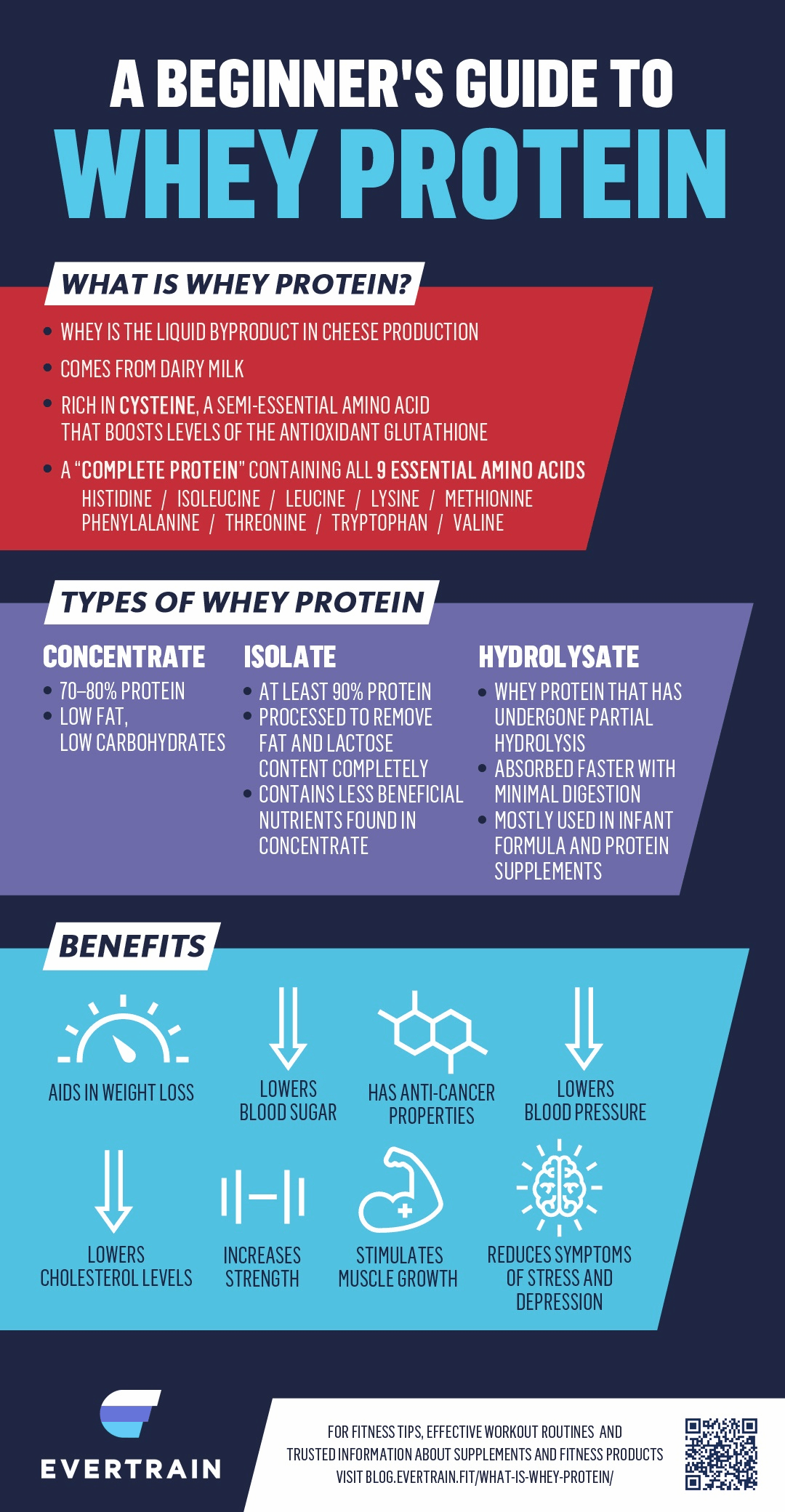What is whey?
Unprocessed whey is a cheese production by-product. After curdling and straining the milk for cheese production, the watery part of the milk separates from the fatty parts and that’s where the whey is found.1✅ JOURNAL REFERENCE
DOI: 10.1016/S0924-2244(02)00111-5
Whey is also one of the most commonly used types of protein used in protein powders. Whey helps in promoting muscle growth, reducing exercise-related injury, and improving athletic performance.2✅ JOURNAL REFERENCE
PMID: 288242963✅ JOURNAL REFERENCE
PMID: 25757896
Is whey gluten free?
Due to the fact that whey is derived from milk, it’s naturally 100% gluten free.
What is whey protein powder?
The whey protein powder which is commonly sold as a dietary supplement is a mixture of proteins that have been isolated from the whey. The 2 main types of protein found in milk are whey and casein, which both need to be processed before being sold as dietary supplements. Whey protein contains a complete range of easily absorbed essential amino acids.4✅ JOURNAL REFERENCE
DOI: 10.1016/S0955-2863(03)00030-5
Is whey powder gluten free?
Although pure whey protein powder is gluten free, a lot of commercially sold whey protein supplements usually contain other ingredients besides whey and may contain gluten. Unflavored whey protein doesn’t taste too good, so it’s usually flavored, and quite often contains sugar or artificial sweeteners. It’s important to ensure that the product you are purchasing does not contain any gluten ingredients such as food starch, caramel color, malt sugar, maltodextrin and dextrin. Some whey protein powders include the amino acid glutamine, which is not derived from any gluten containing foods, and does not need to be avoided.
Types of whey protein
Whey powder is available as whey concentrate, whey isolate or whey hydrolysate, which are all gluten free in pure form and are safe for individuals with celiac disease. Whey concentrate is less processed than whey isolate or whey hydrolysate, consists of approximately 70–80% protein, and contains some lactose and fat. Whey isolate is more processed and consists of at least 90% protein, but is lacking in other beneficial nutrients found in whey concentrate, and contains less lactose and fat. Whey hydrolysate is even more processed with heat that separates amino acid bonds which allows the protein powder to be digested and absorbed quicker.
Certified gluten free protein powder
Although there are manufacturers of whey protein products that make gluten free whey powder, they might also be producing other products which are made with gluten, and there is a chance that their gluten free whey products may have been contaminated from equipment that has been in contact with gluten. To avoid cross contamination, ensure that the whey protein product that you are purchasing is certified gluten free protein powder.
List of gluten-free whey protein powders:
- Amazon Elements Grass-Fed 100% Whey Protein Isolate Powder (Grass fed, non-GMO, no artificial sweeteners, stevia sweetened)
- Orgain Grass Fed Clean Whey Protein Powder (New Zealand sourced grass fed, non GMO, no artificial sweeteners, stevia sweetened, soy free, carrageenan free)
- Bodylogix Natural Grass-Fed Whey Protein Powder (Grass fed, no artificial sweeteners, non-GMO, NSF Certified)
- Garden of Life Sport Certified Grass Fed Clean Whey Protein Isolate (Grass fed, non-GMO, no artificial sweeteners, stevia sweetened, soy free, NSF Certified)
- Nutricost Grass-Fed Whey Protein Isolate (Grass fed, non-GMO)
- Revly 100% Grass-Fed Whey Protein Isolate Powder (Grass fed, non-GMO, no artificial sweeteners, stevia sweetened)
- ArcFire Grass-Fed Whey Protein Isolate (Grass-fed from cold processed milk, NSF Certified)

Image Source – evertrain
Save
Save
Save
Save
